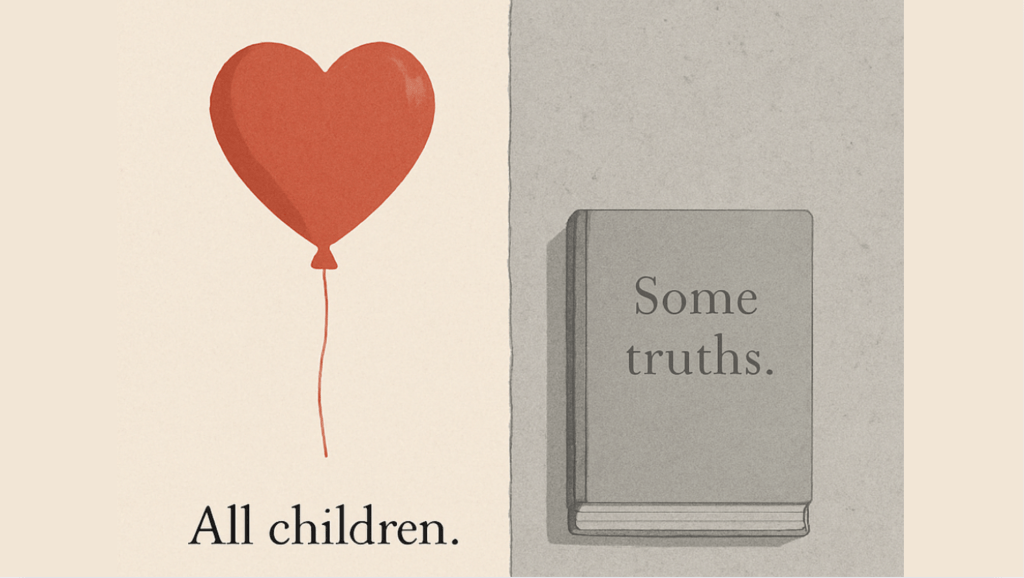Why Nightmares Happen – You’re not watching horror movies, nor reading ghost stories. You’re doing everything “right” before bed, hydrating, skipping alcohol, even playing rain sounds at night.
And still You wake up sweating from dreams of shadows, dead relatives, or getting chased through a collapsing building.
If that sounds familiar, here’s the truth, Your nightmare isn’t random. It’s a message.
And it has everything to do with emotional survival. Nightmares aren’t just about being scared. They’re about something unprocessed and your brain is trying to finish the job.
Why Nightmares Happen = Emotional Processing in Overtime
When you sleep, your brain doesn’t just rest, it gets to work. Specifically during REM (Rapid Eye Movement) sleep, the brain processes emotion-heavy memories and tries to file them somewhere that doesn’t ruin your day.
But if you’ve got stress, guilt, trauma, or shame that hasn’t been dealt with? That emotional “filing cabinet” jams , and your subconscious starts sending distress signals. A loud ones.
Cartwright (2010) called nightmares “failed attempts at mood regulation.”
In short: your brain tried to process something emotionally heavy… and couldn’t. So it keeps looping the message louder.
What Do Nightmares Really Mean?

Emotion | Common Nightmare Themes |
|---|---|
Guilt | Feeling watched, punished, judged, or stuck in an inescapable place |
Trauma | Flashbacks, loss of control, war zones, broken homes |
Anxiety / Stress | Being chased, missing something important, physical disintegration |
Suppressed Emotions | Recurring, chaotic dreams with no plot — just a sense of dread |
Shame or Fear | Dream paralysis, being exposed, attacked, or humiliated |
Why You Can’t Just “Think Positive” and Fix It
Because you don’t process emotions by ignoring them. In fact, research shows that emotional suppression ( pretending everything’s fine, refusing to cry, downplaying trauma ) during the day leads to more intense nightmares at night (Nielsen & Levin, 2007). It’s like skipping a therapy session and then expecting your brain to stay quiet. Even if you’re not consciously stressed, your body keeps score.
Nightmares are often your brain yelling:
“You’re not okay. And you’re pretending you are.”
Why Nightmares Happen – It’s About Emotional Survival, Not Weakness
Most people think nightmares mean you’re fragile or overreacting. But truthfully? If you’re having nightmares while holding it together during the day, that’s not weakness, that’s survival.
Your brain is doing emotional triage. It’s taking all the things you didn’t have time, space, or permission to feel… and trying to process them in your sleep. That’s emotional survival – not failure.
As researcher Antti Revonsuo (2000) put it:
“Dreams are like a virtual reality simulator – they rehearse threats so we survive better when we’re awake.”
Sometimes that “threat” is a memory. A betrayal. A loss. A version of you you’ve tried to forget.
You might not feel it in the day. But at night, your brain says:
“I’m still holding this. Please deal with it.”
Why Nightmares Happen – You’re Not Haunted. You’re Processing.

It might feel like ghosts. Or monsters. Or being stuck in a broken elevator with your high school ex. But really, You’re just trying to metabolize some heavy shit. Your nightmare isn’t a curse. It’s your brain trying to finish something you’ve been avoiding. And while that sucks in the moment, it’s also proof that your system is still fighting to survive, adapt, and protect you. That’s emotional resilience, not a failure.
If this hit a nerve, good. Now do yourself a favor and stop pretending you’re fine.
Write it down. Scream into a pillow. Take a nap. Just don’t ignore the message.
Your brain’s not haunted. It’s just trying to tell you the truth, and that’s not weakness.
That’s a system doing what it’s wired to do: survive, adapt, and keep you going.
Sources
Cartwright, R. (2010). The twenty-four hour mind: The role of sleep and dreaming in our emotional lives. Oxford University Press.
Nielsen, T., & Levin, R. (2007). Nightmares: A new neurocognitive model. Sleep Medicine Reviews, 11(4), 295–310. https://doi.org/10.1016/j.smrv.2007.03.005
Revonsuo, A. (2000). The reinterpretation of dreams: An evolutionary hypothesis of the function of dreaming. Behavioral and Brain Sciences, 23(6), 877–901. https://doi.org/10.1017/S0140525X00003976
Germain, A. (2013). Sleep disturbances as the hallmark of PTSD: Where are we now? American Journal of Psychiatry, 170(4), 372–382. https://doi.org/10.1176/appi.ajp.2012.12040432
Still Awake at 2 AM Wondering If You’re Okay?
Read this next:
It unpacks why so many women turn to true crime, dark fiction, or ghost stories, not because we love the fear, but because we’re trying to make sense of it.
Sometimes your Notes app knows more about your healing than people in your life.
One is soft, tired, and slow. The other is chasing power-ups and trying to evolve before bedtime. Both are valid. Especially if you’ve cried today.
You don’t need to explain why you’re tired. Or why your brain plays horror shows at night. You just need to know that wanting safety, softness, and peace isn’t weakness. It’s human.
This piece is for the ones who hold everyone else together, and then go home and unravel in silence.
You don’t have to keep pretending you’re fine.







